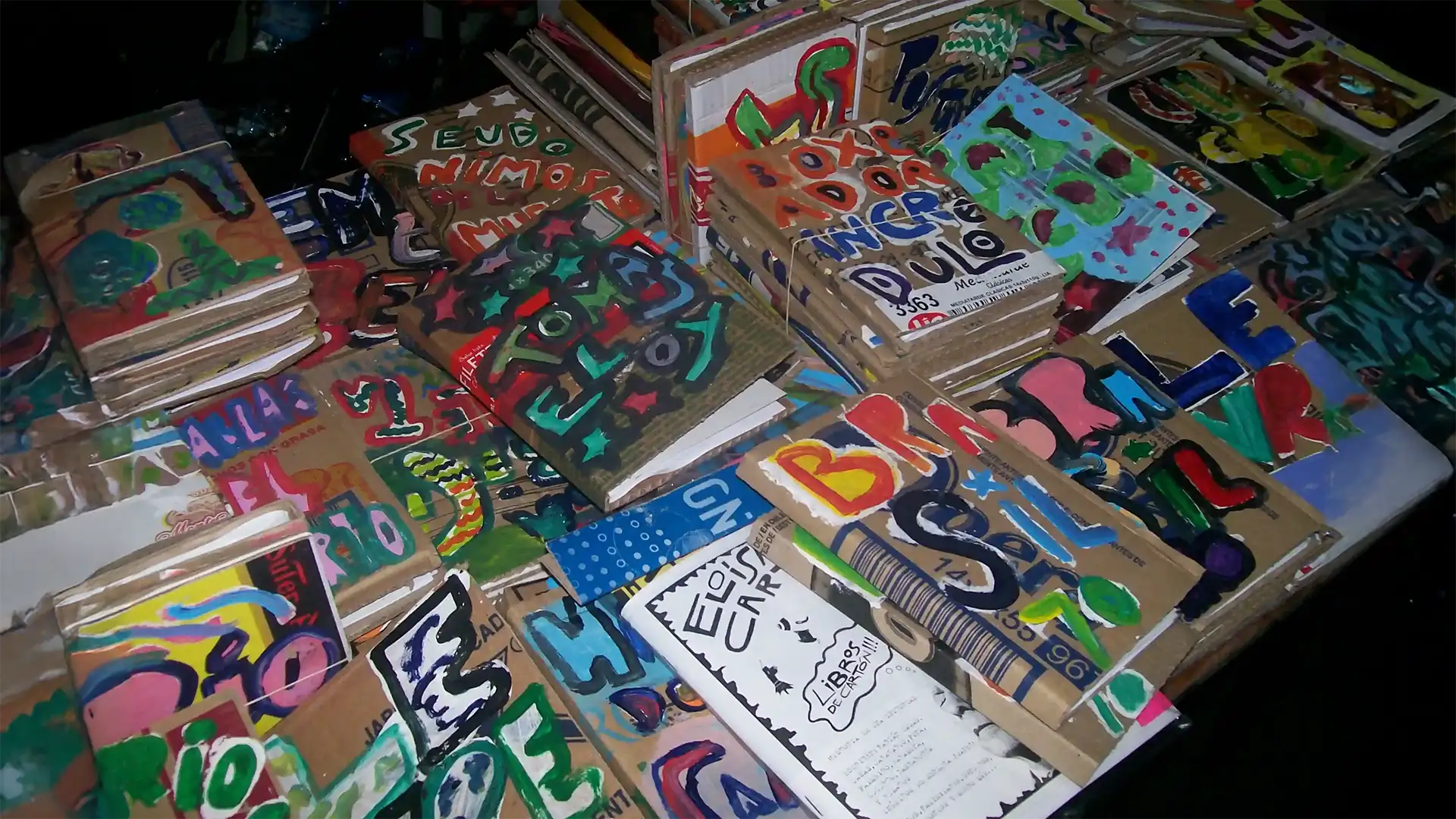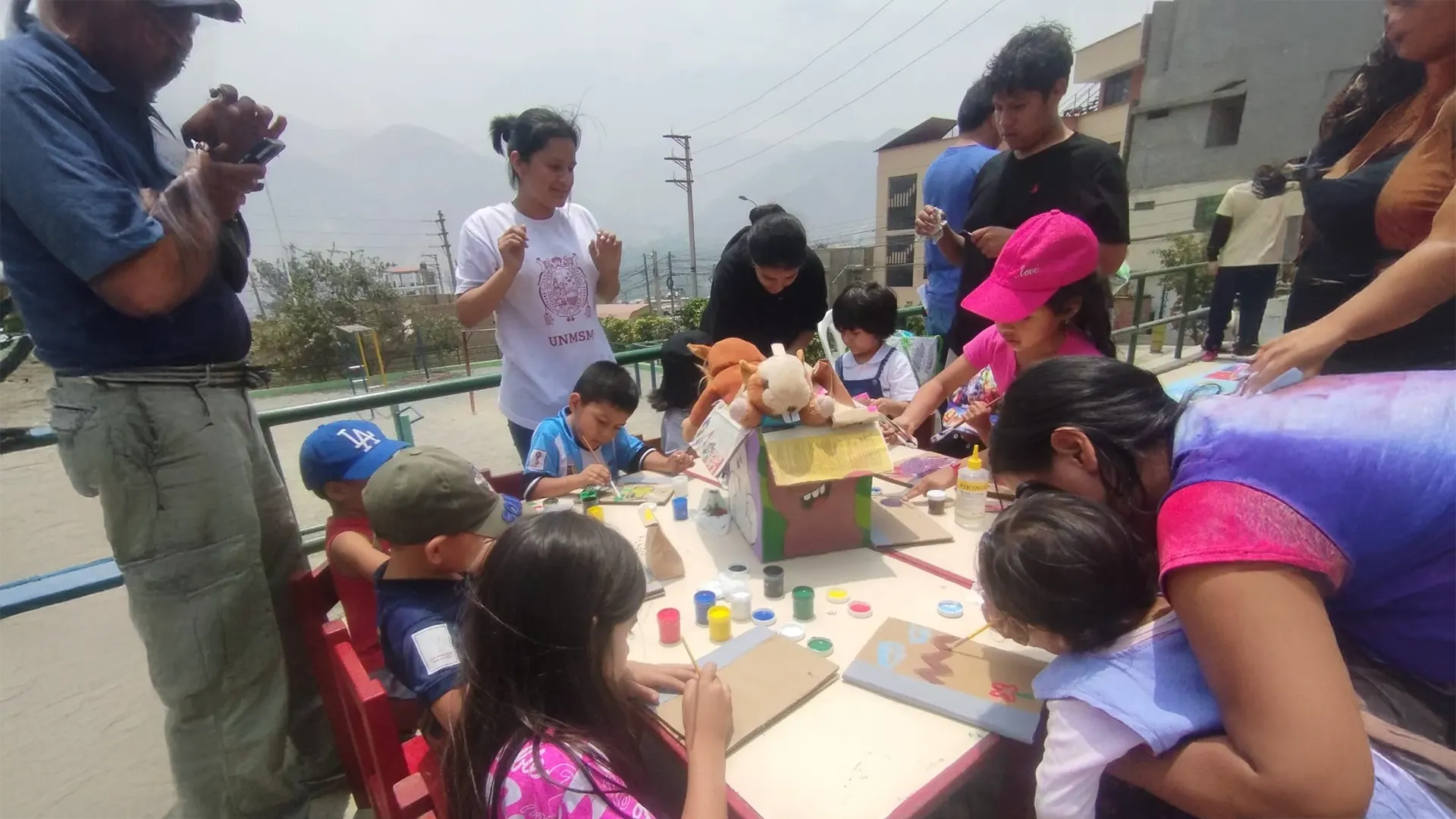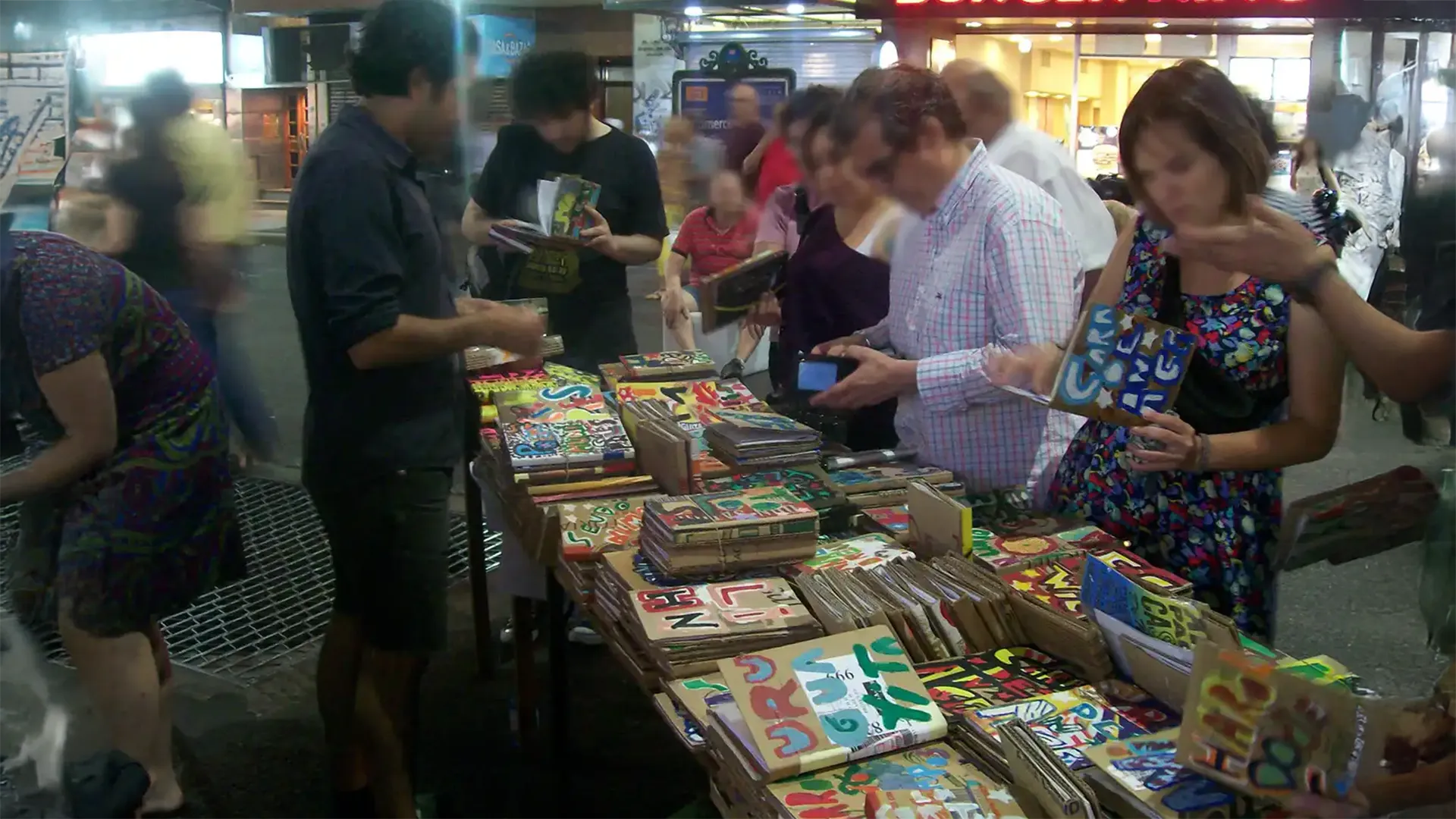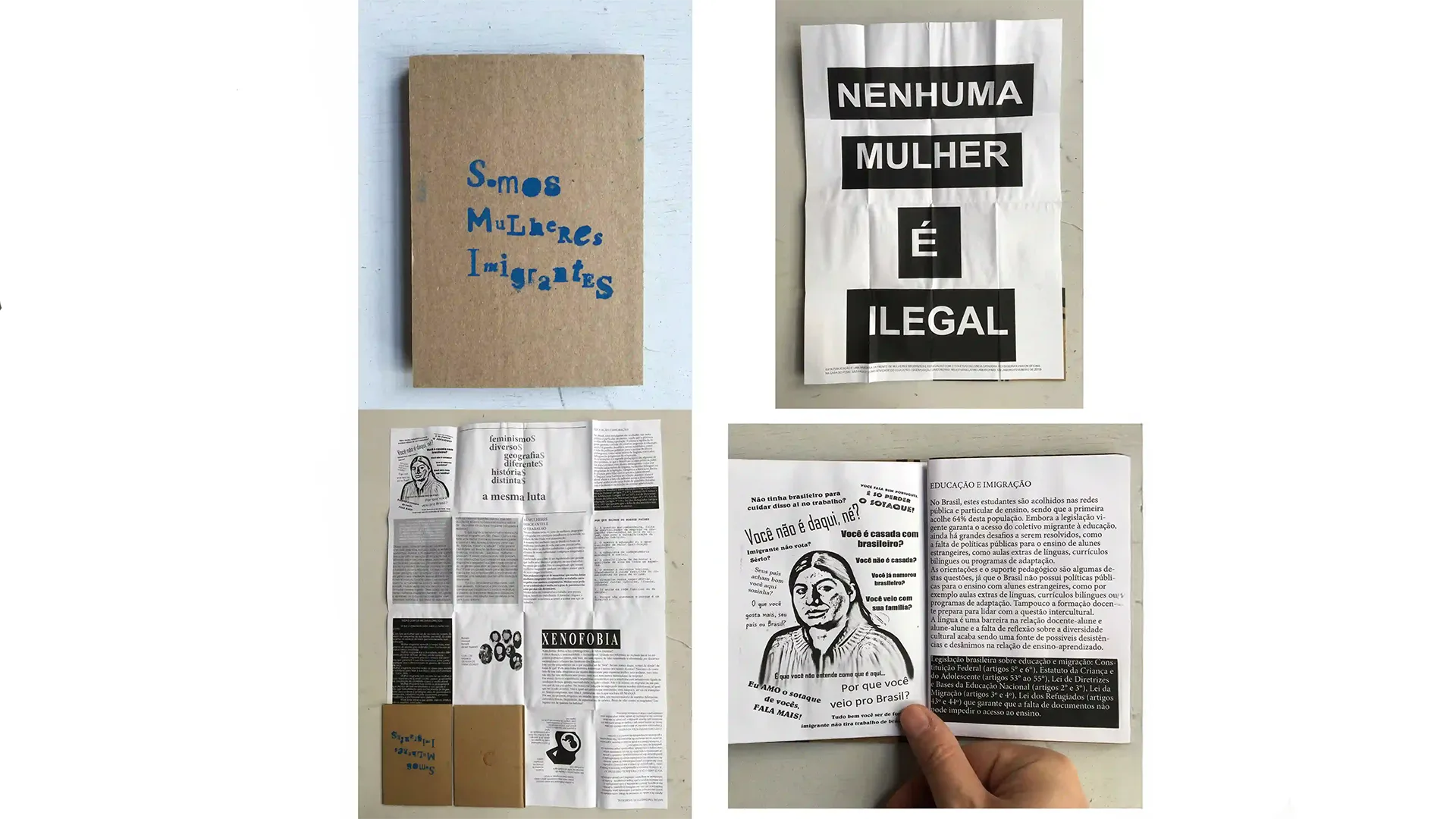Books from Eloísa Cartonera
Aleposta | CC BY-SA 3.0 | Via Wikimedia Commons
Emerging in Argentina after the economic crisis of the early 2000s, the Cartonera publishing movement derives its name from cartoneros, people who recycle cardboard for a living.
Cartonera soon spread throughout Latin America, focusing on artisanal editions with covers made from repurposed cardboard.
Literary critic John Beverley sees its development as a “militant practice” and a “new, collective form of ‘making’ literature.”
Cartonera books are often produced in workshops, where participants create the covers and bind them.
Since the covers are individually handcrafted, no two are identical.
Members of the Grupo Caramandunga
ValverdeOrbegozo | CC0 | Via Wikimedia Commons
Books from Eloísa Cartonera
Aleposta | CC BY-SA 3.0 | Via Wikimedia Commons
Cartonera publishers are not profit-driven and display a fair-trade, ecological mindset. They purchase cardboard from grassroots recyclers, who may also be involved in the crafting of the books.
Books are sold at cheap prices on the street or at fairs, rarely in bookstores. Because Cartonera publishers exist independently of any publication conglomerates, their distribution beyond niche markets is very restricted.
Beyond collective production and affordable prices, Cartonera publishers practice social inclusion by giving a voice to marginalized authors and artists who are outside of standard communication venues.
Some publishers carry out writing projects in penitentiaries and rehabilitation facilities.




